Animal Models of Human Infections
The human body's architecture is designed in such a way that cells cannot be regarded as separate entities. Various methodologies, such as cell-based tests and tissue culture research, are performed to explore disease mechanisms and develop ways to reverse adverse conditions. A good animal model for any disease should have pathology that is similar to human disease circumstances. Animals have been used in scientific investigation since the fourth century B.C. Animal models can help researchers better understand disease processes and treatments, as well as overcome the constraints of human-subject clinical trials. Animals are increasingly being used as experimental models for human diseases in order to better understand disease origins, biology, and prevention. Laboratory animals play an important role in scientific study, discoveries, and technological advancements, and they help people and other valuable creatures live better lives. Animals are employed as models for studying human biology and diseases, as well as test subjects for the creation and testing of medications, vaccinations, and other biologicals (antibodies, hormones, and so on) to improve and promote human health.
- Studying Genetic Diseases
- Animal Disease Model
- Rare Disease Study Model
- Modern Medicine and Animal Models
- Laboratory Testing
- Ethical Considerations
- Drug and Vaccine Testing

Marco Polettini
DVM, Italy
Andreia Freitas
INIAV/REQUIMTE, Portugal
Andreia Freitas
INIAV/REQUIMTE, Portugal
Kedibone Gloria Kgosana
Sefako Makgatho Health Sciences University, South Africa
Nnenna Ugwu
Anglia Ruskin University, United Kingdom
Rubens Dias de Melo Junior
Universidade Federal de Goiás, BrazilSubmit your abstract Today
Important Alert:
X


Title : Analyzing veterinary medicine residues in food: A comprehensive guide
Andreia Freitas, INIAV/REQUIMTE, Portugal
Title : Quantifying changes in facial expression following hot-iron disbudding under procaine hydrochloride and meloxicam treatment in Holstein dairy calves
Nnenna Ugwu, Anglia Ruskin University, United Kingdom
Title : Trypanosoma vivax in and outside cattle blood: Parasitological, molecular, and serological detection, reservoir tissues, histopathological lesions, and vertical transmission evaluation
Rubens Dias de Melo Junior, Universidade Federal de Goiás, Brazil
Title : Characterization of porcine rotaviruses in the Czech Republic
Romana Moutelikova, Veterinary Research Institute, Czech Republic
Title : Determination of Circulating Foot-and-Mouth Disease Virus Serotypes in Kenya (2023)
Hellen Mutua, Foot and Mouth Disease National Reference Laboratories, Kenya
Title : Welfare for Amazonian wild animals
Eliane Cardoso Carvalho Moraes, Jungle Warfare Training Center/ Army, Brazil